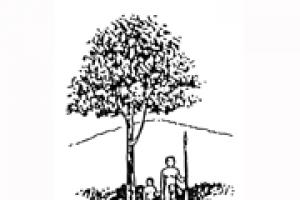On a group of Melanesian islands in the South Pacific, a tragic plunder is taking place. Logging by mainly Malaysian companies has escalated in the last five years to more than 3 times the estimated sustainable yield. In other words the forests are being logged at more than three times faster than they are growing. In less than ten years all the productive lowland forests will be logged. The forests are rich tropical rainforests with thousands of unique plants and animals. As well, a diversity of cultures and people who customarily own and rely on the forests are under threat.
Large-Scale Tree Plantations
Industrial tree plantations are large-scale, intensively managed, even-aged monocultures, involving vast areas of fertile land under the control of plantation companies. Management of plantations involves the use of huge amounts of water as well as agrochemicals—which harm humans, and plants and animals in the plantations and surrounding areas.
Bulletin articles
18 May 2000
Bulletin articles
18 April 2000
Gabon's primary rainforests are disappearing at a high speed. Logging of precious tropical wood is practised as a depredatory activity, where transnational logging companies, that hold huge concessions, make big money, while local communities have to bear the costs (see WRM Bulletin 28).
Bulletin articles
18 April 2000
During the first years of the 1990s Liberia was the scenario of a civil war which left 150,000 fatal victims and one million people displaced or leaving the country as refugees. From January to November 1996 the war was triggered again until finally presidential elections took place in 1997. Governments of neighbouring countries, as well as European governments and companies -particularly Belgian and French- were involved in the delivery of weapons to the different groups engaged in the conflict, in exchange for gold, diamonds and roundwood.
Bulletin articles
18 April 2000
The comercial cultivation of "palmito" palms (from which heart of palm is extracted) began in Ecuador in 1987 and since then its expansion has been constant, having become a new export crop. The heart of palm is obtained from the interior of the trunk of several species of palm trees. The "chontaduro" (Bactris gasipaes), a palm native to Ecuador, is the most cultivated in the country to this aim.
Bulletin articles
18 April 2000
Smurfit Carton, subsidiary of Jefferson Smurfit, owns 34,000 hectares of monocultures of gmelina, eucalyptus and pine in the Venezuelan states of Portuguesa, Lara and Cojedes. 27,000 hectares are located in Portuguesa, where the company confronted the local communities of Morador and Tierra Buena, which resisted the invasion of tree plantations in their agricultural lands (see WRM Bulletins 18, 20, 22 and 23).
Bulletin articles
18 April 2000
The new Government of Aotearoa -a coalition supported by the Greens- has banned the cutting of indigenous beech trees (and soon probably Rimu and other species), because of the enormous pressure on the country's remaining areas of natural forest, which include temperate rainforest and temperate dryforest.
Other information
18 April 2000
Genetically engineered trees are a new threat pending on native forests and other ecosystems worldwide. The development of "Frankentrees" is being promoted by joint-ventures formed by biotechnology, chemical and paper giants, together with some of the world's largest landowners. Monsanto -which has a long dark history in the field of genetically engineered food- ForBio, International Paper, Fletcher Challenge Forests, GenFor, Canada Interlink, Silvagen, the Chilean Development Agency, Shell and Toyota are some of the firms involved in the development of this technology.
Bulletin articles
19 March 2000
The U$S 3.5 million loan that the International Finance Corporation (IFC) of the World Bank Group is about to award to the Liberian Agricultural Company (LAC) to develop a rubber plantation of 120,000 hectares in the Grand Bassa county is provoking growing concern in Liberia (see WRM Bulletin 29). The project is aimed at restarting operations and initiating a rehabilitation program of the plantation, which had been abandoned because of the civil war that affected the country between 1989 and 1997.
Bulletin articles
19 March 2000
Due to a decline in log supply in their own country -as a consequence of years of depredatory practices- Malaysian logging companies have recently and rapidly expanded abroad. Some of them, together with oil palm plantation companies, are well known to the indigenous peoples of Sarawak for having negatively affected their livelihoods and promoted the destruction of the native forests. The Malaysian government has publically expressed the need for its country's companies to operate responsibly abroad, but reality seems far away from such concern.
Bulletin articles
19 March 2000
The case of Sarawak is probably one of the best ones to show the importance of definitions. Tree plantations have been defined by the UN Food and Agriculture Organization (FAO) as "planted forests" and the entire forestry profession -the "experts"- is totally unwilling to revisit such definition. The reason is that it serves their purposes -including their image and budgets- very well.

